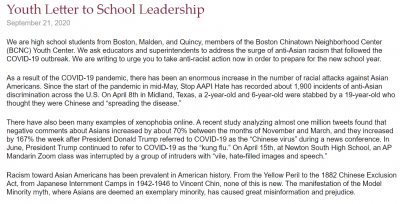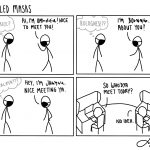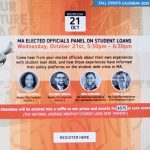A group of high school students from Boston, Malden and Quincy published an open letter Sept. 21 demanding educators and superintendents take action against rising anti-Asian sentiments.

Since the outbreak of COVID-19, anti-Asian racism has been on the rise, the letter stated. Much of the xenophobia is evidenced by negative comments online.
The letter referenced a study that found that anti-Asian comments increased after President Donald Trump called COVID-19 the “Chinese virus.”
“We are writing to urge you to take anti-racist action now in order to prepare for the new school year,” the letter stated. “We feel unsafe returning to schools with unaddressed racism. School is a place for learning, not a place for discrimination.”
The students’ list of demands includes publicly standing up for antiracism, teaching more ethnic studies courses, hiring more faculty and staff of color and providing more guidance counselors for students.
Boston Public Schools Assistant Superintendent of Equality Rebecca Shuster said BPS has been actively working to combat racism for years, most notably evident in its program “24/7 Respect,” which is required for all middle and high school students.
“They view a video and discuss scenarios that are realistic and relevant to learn about what their rights and responsibilities are to prevent those incidents and to address them when they happen,” Shuster said. “One of the scenarios in that film is specifically about anti-Asian bias.”
Regarding specific demands, such as implementing more ethnic studies courses, Shuster said BPS has a “multi-pronged approach” in ensuring the curriculum is “culturally and linguistically sustaining.”
“Ethnic studies is one approach where there’s a specific course developed, including courses that reflect the history of Asian Americans and help to affirm our Asian students’ identities and cultures,” Shuster said. “Ethnic studies is woven through everything we do each day as well as, on occasion, being an extra area of study.”
Kevin Mulvey, superintendent of Quincy Public Schools, wrote in an email that QPS takes allegations of discrimination “seriously” and intends to investigate them “to the fullest extent possible.”
“The recent open letter to the community is a justified expression of frustration at disrespect and discrimination,” Mulvey wrote. “I encourage students, parents, or staff to contact me directly so that specific incidents can be investigated confidentially.”
Mulvey said QPS must be willing to have conversations about racism.
“We anticipate mistakes will be made, but we can not avoid discussions around racism and social justice because the issues are contentious and complex,” Mulvey wrote. “Now is the time to examine our practices and protocols for addressing these issues for individual students and systemically.”
Edward Hsieh, chief operating officer of the Asian American Civic Association, an organization dedicated to helping economically disadvantaged individuals and those with limited English proficiency, said anti-Asian racism has existed in the U.S. for generations.
“Racism against Asians has always been part of the system,” Hsieh said. “Historically, we have all those various past events, the internment camps, racism against the Vietnamese during the war, so on and so forth.”
The pandemic, combined with the current political climate in the nation, has brought out that hidden racism, Hsieh said.
“The pandemic and other political situations have just made it more acceptable for those individuals with those bad opinions to flaunt their racism,” Hsieh said. “It’s become more acceptable for them to be very explicit about it whereas in the past, that kind of was more quiet.”
The letter states that people have commonly pushed the model minority myth as a way to ignore racism against Asians, and that the myth has “caused great misinformation and prejudice.”
Hsieh also said it’s “not all sunshine and roses” for Asian Americans, and that many of them suffer the same obstacles as other minorities.
“Asian American itself is sort of a misnomer because there are so many different ethnicities covered by Asian American,” Hsieh said. “Those are the individuals we work with here at AACA, so we see it firsthand, that there’s a lot of Asian Americans of different ethnicities across different spectrums.”




